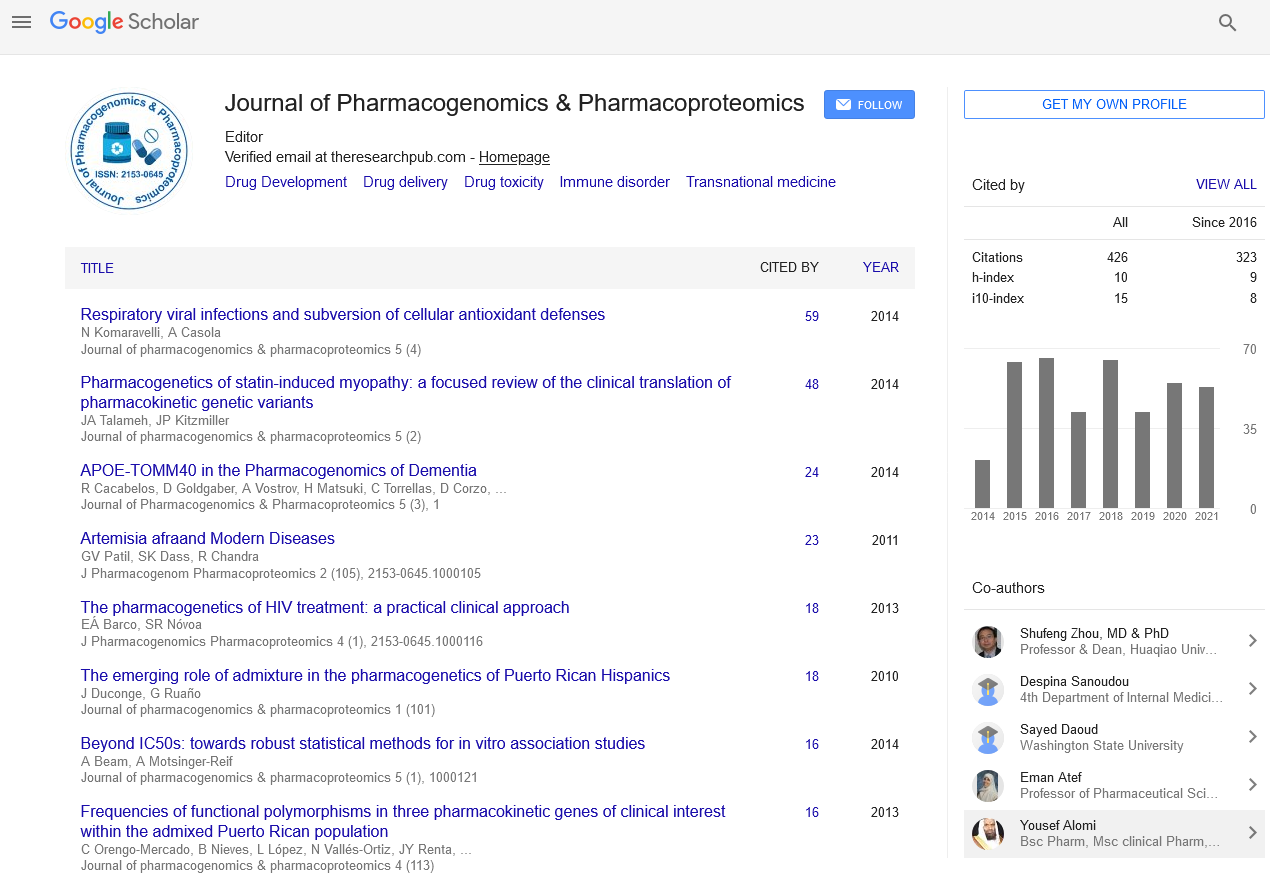Indexed In
- Open J Gate
- Genamics JournalSeek
- Academic Keys
- JournalTOCs
- ResearchBible
- Electronic Journals Library
- RefSeek
- Hamdard University
- EBSCO A-Z
- OCLC- WorldCat
- Proquest Summons
- SWB online catalog
- Virtual Library of Biology (vifabio)
- Publons
- MIAR
- Euro Pub
- Google Scholar
Useful Links
Share This Page
Journal Flyer

Open Access Journals
- Agri and Aquaculture
- Biochemistry
- Bioinformatics & Systems Biology
- Business & Management
- Chemistry
- Clinical Sciences
- Engineering
- Food & Nutrition
- General Science
- Genetics & Molecular Biology
- Immunology & Microbiology
- Medical Sciences
- Neuroscience & Psychology
- Nursing & Health Care
- Pharmaceutical Sciences
Acute appendicitis with neuroendocrine tumor G1 (carcinoid): Pitfalls of conservative treatment
4th International conference on Predictive, Preventive and Personalized Medicine & Molecular Diagnostics
September 22-23, 2016 Phoenix, USA
Hiroyuki A Watanabe, Taketoshi Fujimoto, Yo Kato, Mayumi Sasaki and Toshikazu Ikusue
Kohnan Aozora, Japan
Hiratsuka Gastroenterological Hospital, Japan
Dokkyo Medical University, Japan
Shiseikai Daini Hospital, Japan
Showa University Northern Yokohama Hospital, Japan
Scientific Tracks Abstracts: J Pharmacogenomics Pharmacoproteomics
Abstract:
Appendectomy is widely accepted as the first line treatment for acute appendicitis in the absence of abscess formation and peritonitis. However, controversy remains over the therapeutic options after conservative treatment. Here, we describe a case of neuroendocrine tumor G1 (NET G1; carcinoid) that was found by performing interval appendectomy after successful conservative treatment. A man in his early 30s presented to our clinic with right lower abdominal pain. Computed tomography (CT) and ultrasonography (US) revealed a swollen appendix and an appendicolith. Abscess formation was not observed but ongoing appendiceal rupture was not ruled out. Three months after successful conservative therapy, the lumen of the apical portion was kept dilated and laparoscopic interval appendectomy was performed. No tumorous findings were observed macroscopically. However, by histology, many tiny nests were found infiltrating the submucosa, muscular layer and subserosa at the root of the appendix. Appendiceal neuroendocrine tumor G1 (NET G1; carcinoid) was diagnosed immunohistologically. Neither CT nor US visualized the tumor because of its non-tumor forming but infiltrative growth. In conclusion, after successful conservative treatment, interval appendectomy should be considered to uncover possible appendiceal NET G1 (carcinoid), particularly when dilatation of the distal lumen being kept observed.
Biography :
Hiroyuki A Watanabe has studied Pathology and received Doctor of Medical Science degree from Showa University, School of Medicine in Tokyo. He has received Clinical training of Internal Medicine and Gastroenterology at Showa University School of Medicine in Tokyo and Tokai University, School of Medicine at Isehara in Japan. He has worked as a Visiting Fellow at the Internal Medicine and Pathology at Free University, School of Medicine in Berlin in Germany. He is a Member of Japanese Society of Gastroenterology and Japan Gastroenterological Endoscopy Society and his subspecialty is gastroenterology and gastroenterological endoscopy. He has published about 50 papers in journals in gastroenterological field.


